MoF-UG Economic Roundtable: Experts Propose Solutions for Restoring Macroeconomic Stability
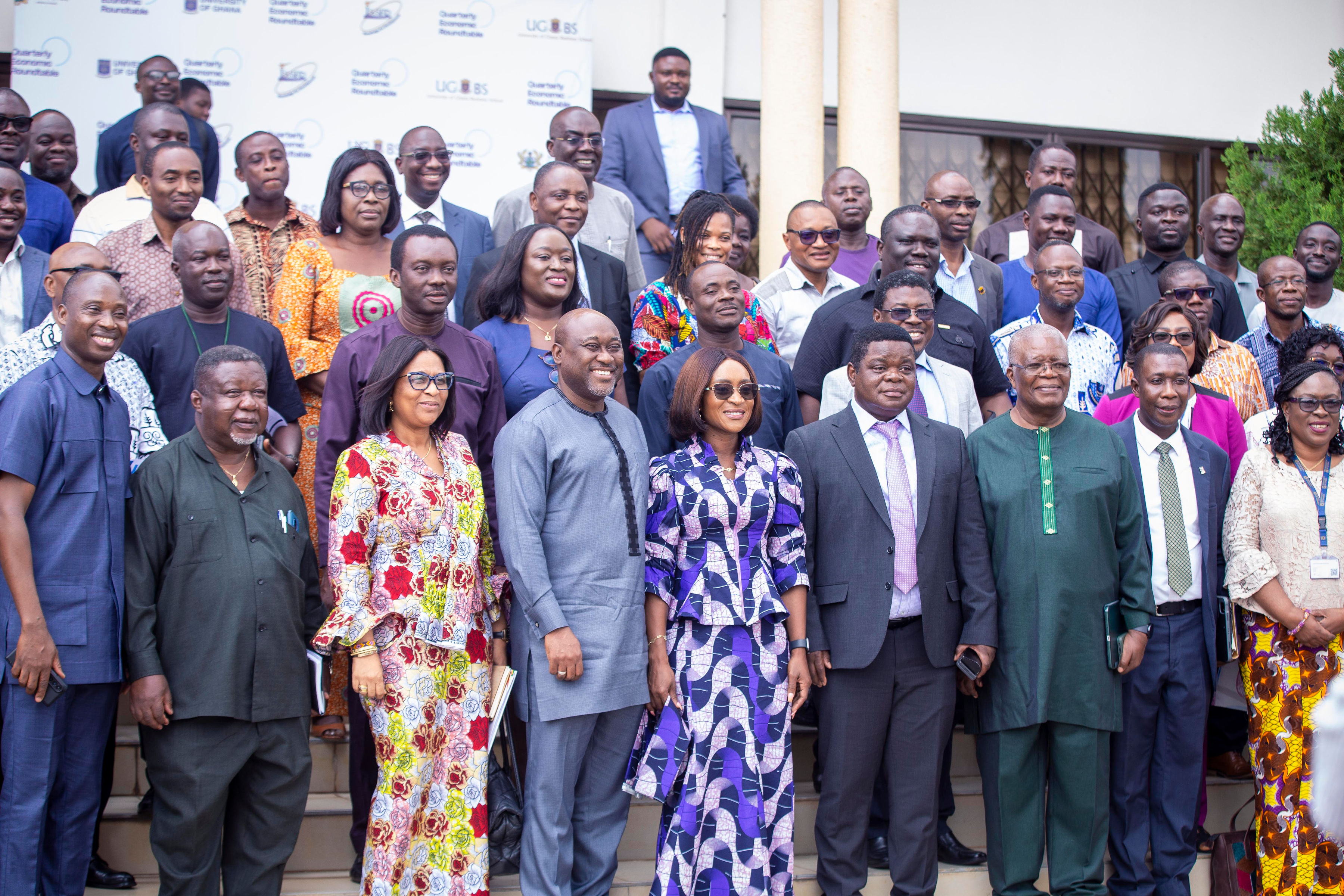
In a concerted effort to tackle Ghana’s economic challenges, the Ministry of Finance (MoF) and the University of Ghana (UG) co-hosted the inaugural Quarterly Economic Roundtable (QER) at the ISSER Conference Hall to propose actionable solutions aimed at restoring Ghana’s macroeconomic stability.
The event brought together a diverse group of policymakers, economists, academics and industry experts to deliberate on pressing issues surrounding fiscal discipline, debt management and monetary policy, crucial for restoring macroeconomic stability.
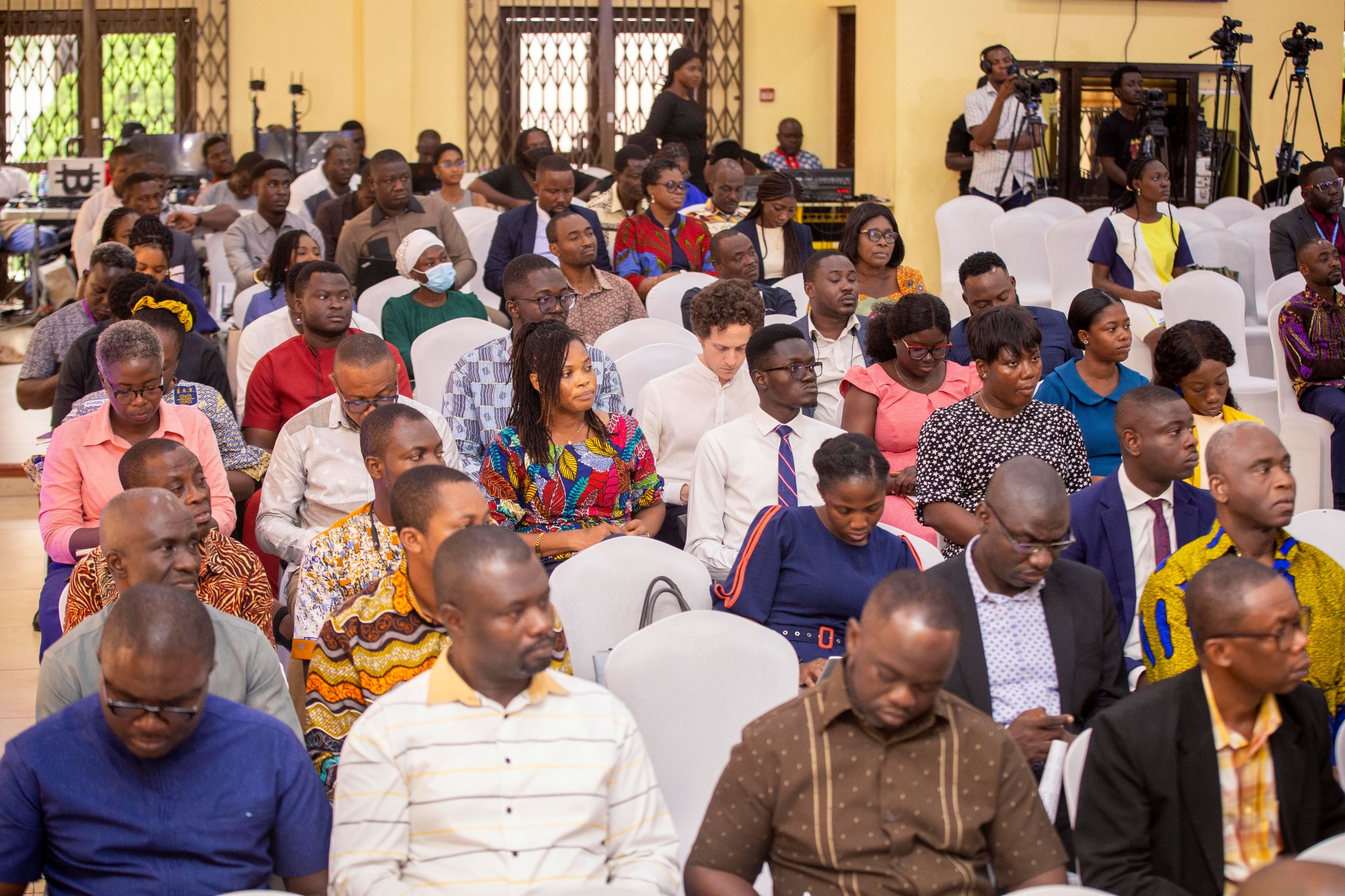
Delivering remarks to open the forum, Prof. Gordon Awandare, Pro Vice-Chancellor for Academic and Student Affairs at UG, who represented the Vice-Chancellor Prof. Nana Aba Appiah Amfo, highlighted the imperative of the dialogue between academia and policymakers in addressing economic challenges effectively.
Reflecting on the current economic climate, Prof. Awandare acknowledged positive indicators such as slowing inflation but cautioned against persistent challenges like currency pressures. He called for addressing what he described as Ghana's ‘political business cycle’ to mitigate pre-election spending surges that destabilise fiscal discipline.
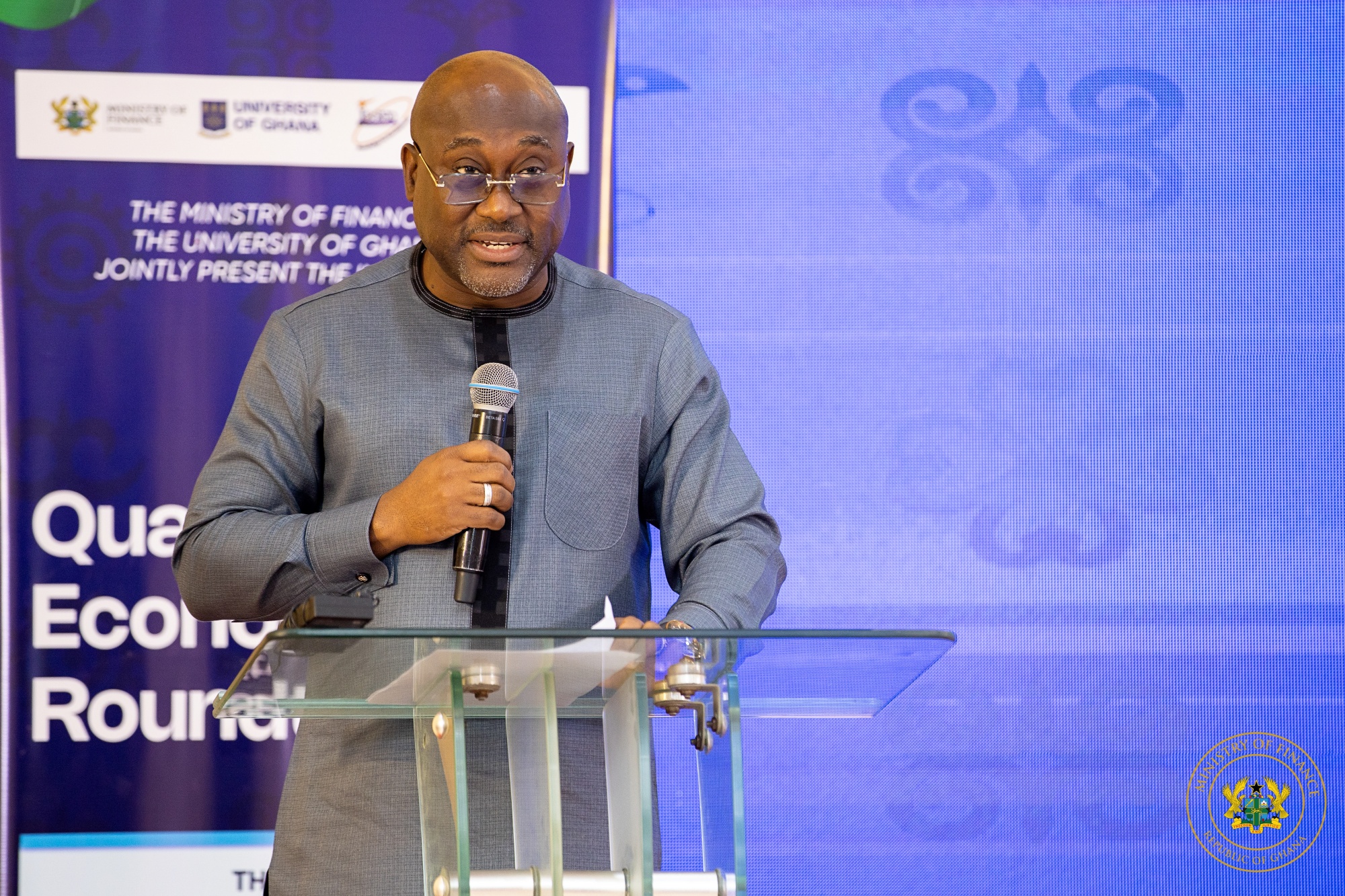
Hon. Abena Osei Asare, Member of Parliament for Atiwa East and Minister of State at Ministry of Finance, who stood in for the Finance Minister Hon. Amin Adam, mentioned that the government was aware of the importance of fiscal discipline and transparency in public finance management.
She underscored the government’s commitment to implementing stringent fiscal policies to help reduce deficits and manage public debt sustainably.
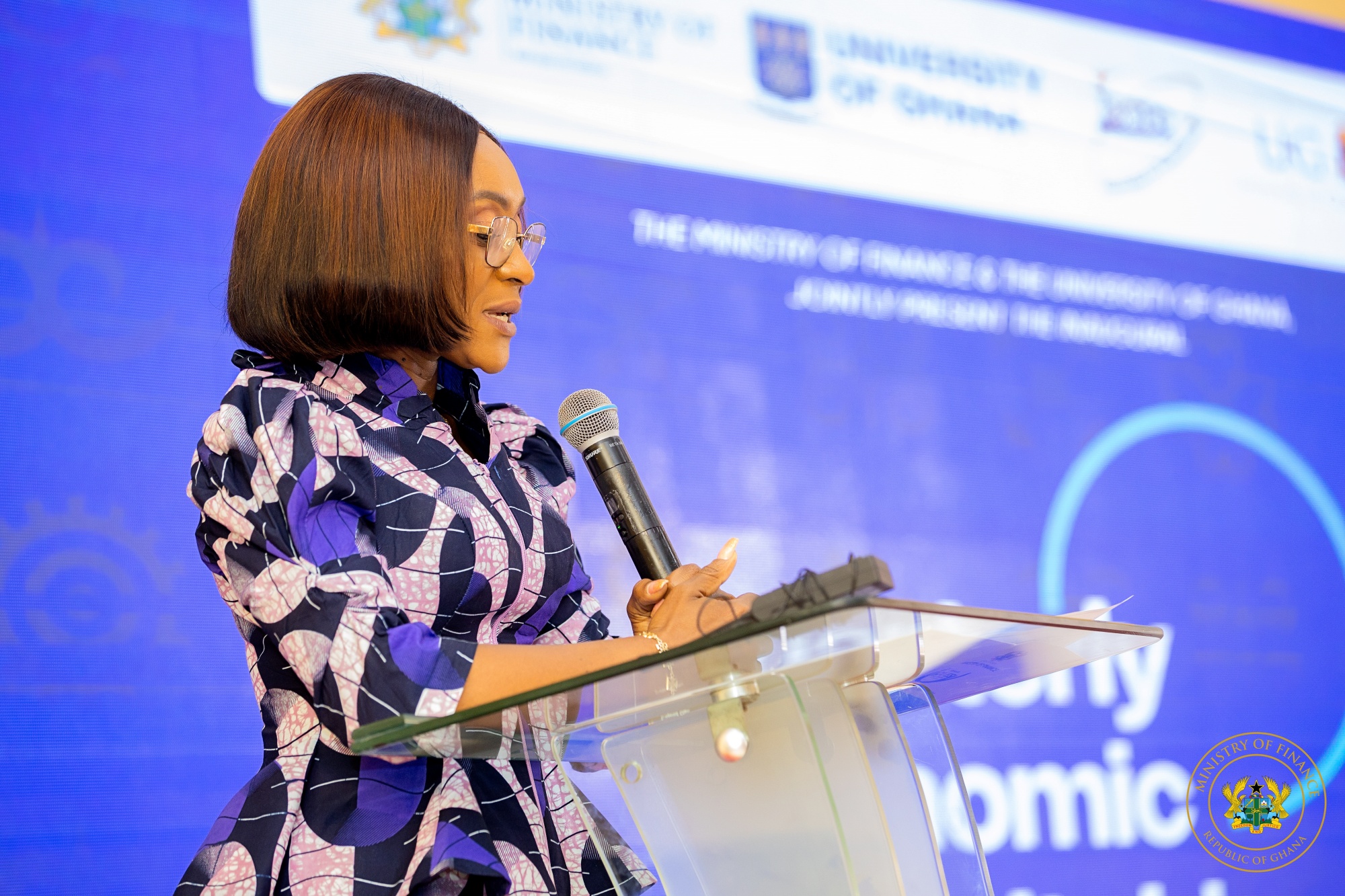
“We must view fiscal discipline as essential to our economic recovery. Transparency in public finance management, full implementation of the PFM Act and enhanced accountability mechanisms are crucial to ensuring efficient use of public funds,” Hon. Abena Osei Asare affirmed.
Addressing a gathering on the broader theme for the full-day event, Keynote Speaker, Dr. Nii Kwaku Sowah, Ghana Country Director of the International Growth Centre, offered insights into the necessity of scrutinising budget expenditures to enhance fiscal stability to stimulate economic growth.
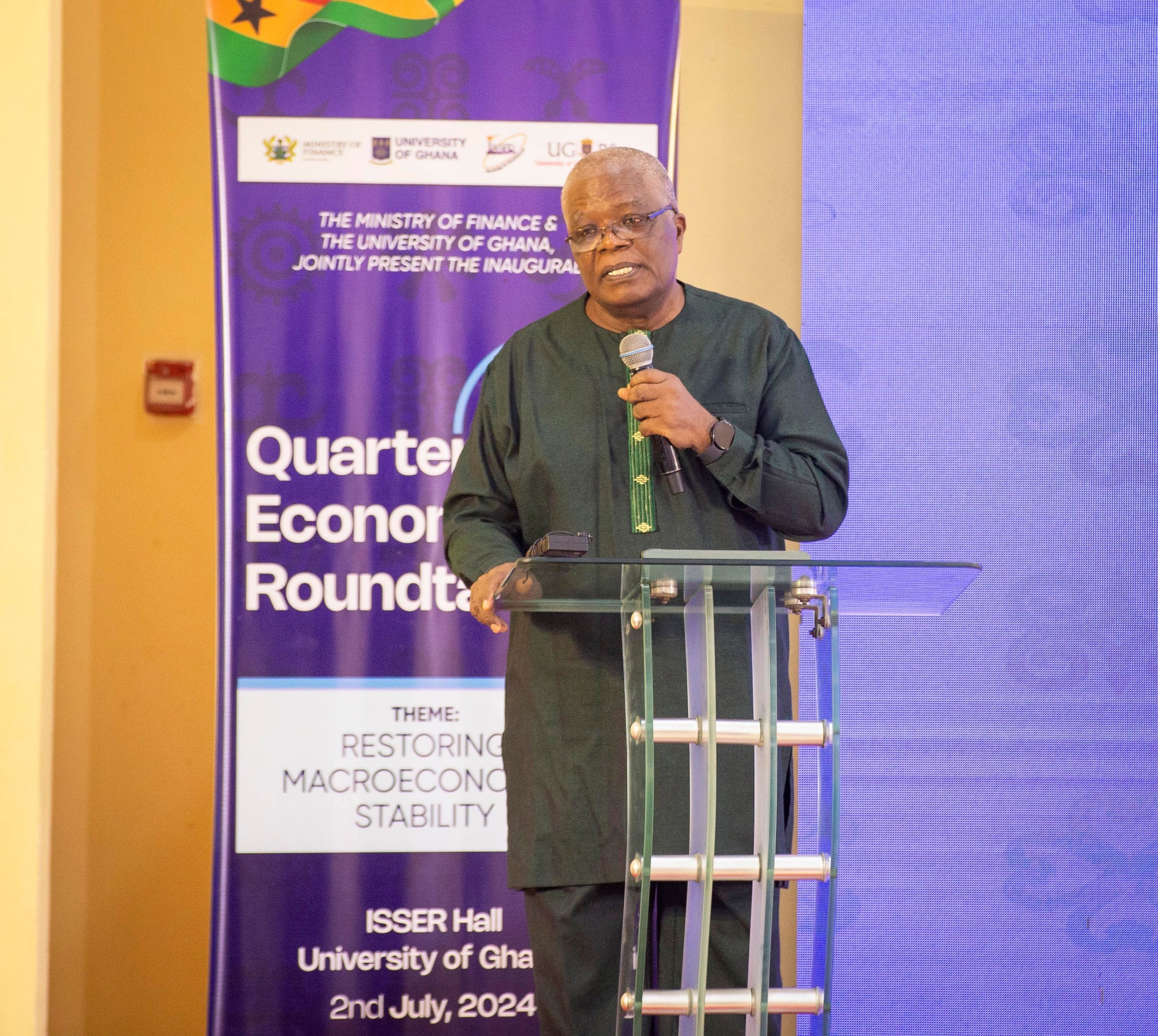
He advocated for revisiting fiscal responsibility laws and establishing enforceable debt ceiling limits to curb unsustainable borrowing practices.
A key part of his recommendations was for the government to focus on efficient and sustainable revenue collection measures to restore macroeconomic stability. “If you ask me to give you a hint as to what can be done about revenue, I will say improve the efficiency of revenue collection. Do not add one single tax more; it becomes a burden to the Ghanaian. There are too many taxes in this system.”
The symposium progressed with three focused panel sessions, starting with panel one, which discussed Fiscal Policy and Business Environment featuring Dr. Alhassan Iddrisu, Director, Economic Strategy and Research Division, MoF; Prof. William Baah Boateng, Head, Department of Economics, UG and Mr. Leslie Bright Mensah, Economist and Research Fellow, Institute of Fiscal Studies.
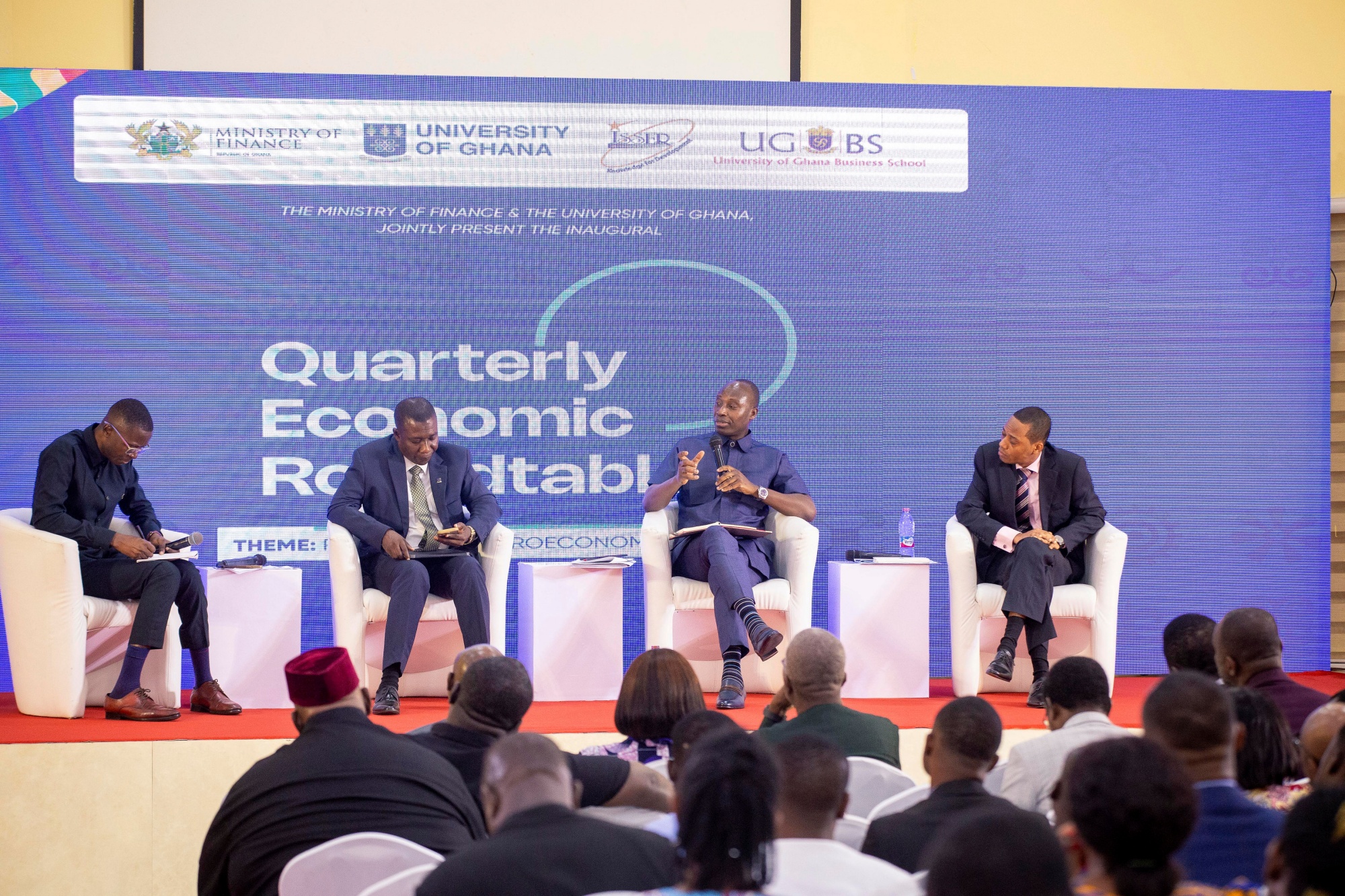
The panel examined the effectiveness of government fiscal policies in creating an enabling environment for businesses. Discussions centred on fiscal consolidation measures and the impact of tax administration on economic growth.
The second panel delved into issues of Debt Management Strategies with Prof. Peter Quartey, Director, Institute of Statistical, Social and Economic Research (ISSER), UG, delivering a presentation on Ghana’s debt stock over the years. He was joined by Mr. Samuel Arkhurst, Director, Treasury and Debt Management Division, Ministry of Finance and Mr. Franklin Cudjoe, President, IMANI Centre for Policy and Education, to deliberate on policies to manage Ghana’s escalating debt levels, advocating for transparency in government borrowing and spending.

The panel emphasised the need for rigorous debt management practices to prevent economic instability.
The issue of Monetary Policy and Macroeconomic Stability was on the table for discussion by Prof. Ebo Turkson, Member of the Monetary Policy Committee, Bank of Ghana; Mr. Joe Jackson, CEO, Dalex Finance, preceded by a presentation by Prof. Agyapomaa Gyeke-Dako, Economist at the University of Ghana Business School. She highlighted the imperative of comprehensive strategies to address Ghana's economic challenges and stressed the need for cohesive stakeholder engagement and effective communication.

The panel explored the role of monetary policy in maintaining macroeconomic stability, focusing on inflation-targeting strategies and measures to stabilise the local currency amidst global economic pressures.
Throughout the discussions, speakers emphasised the importance of stakeholder collaboration and effective communication in implementing sustainable economic policies.
In his closing remarks, Mr. Bernard Avle, Broadcast Journalist and General Manager at Citi FM/TV, who moderated the full-day session, commended the speakers and panelists for their depth and relevant contributions. He underscored its potential to shape Ghana’s economic agenda beyond the current administration.
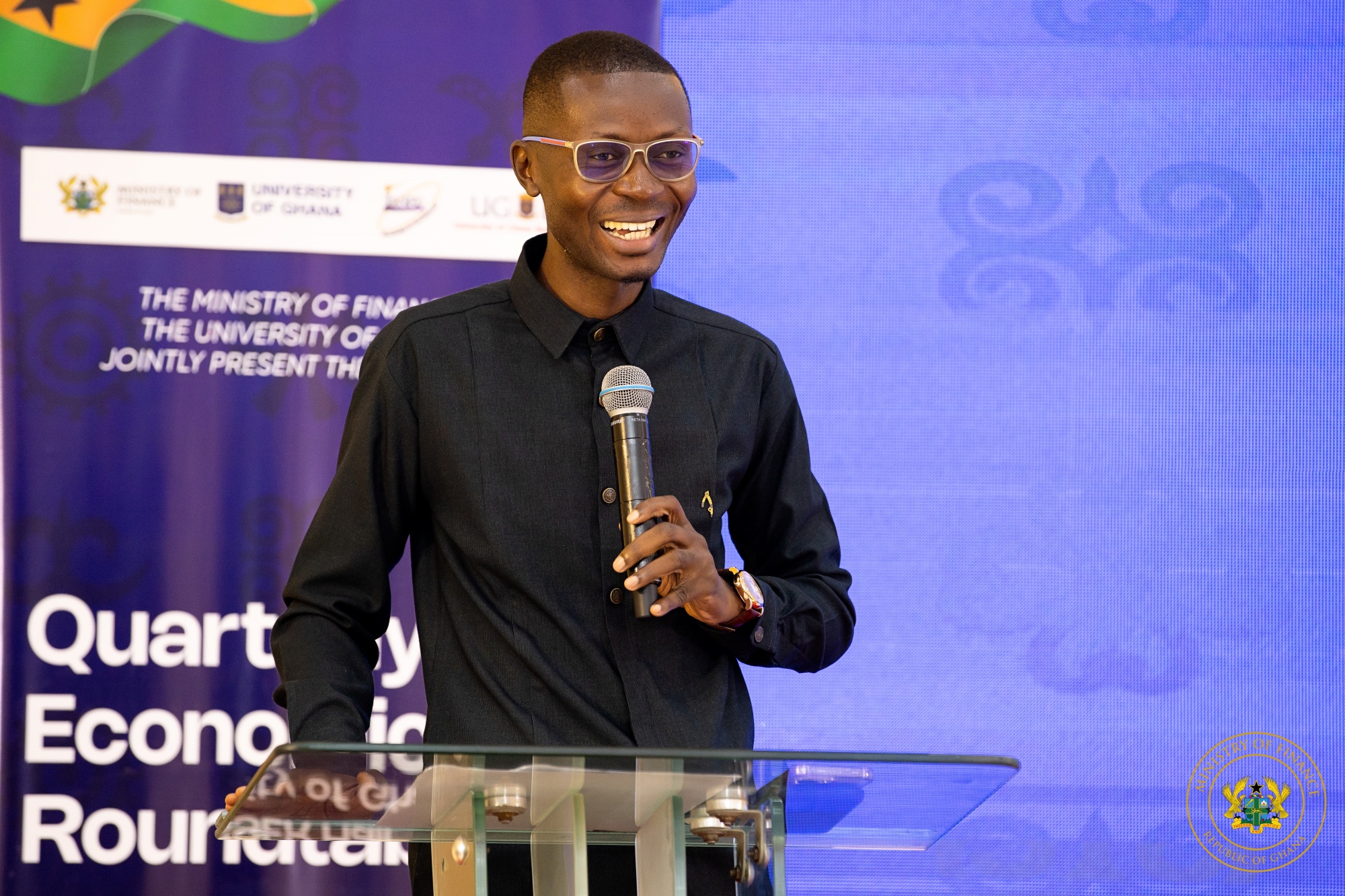
The event concluded with a consensus on the urgency of adopting pragmatic measures to achieve sustainable economic growth and stability.
The QER marked a significant step towards fostering closer collaboration between academia and policymakers, reflecting a shared commitment to navigating Ghana’s economic landscape through informed policy discourse and actionable solutions.